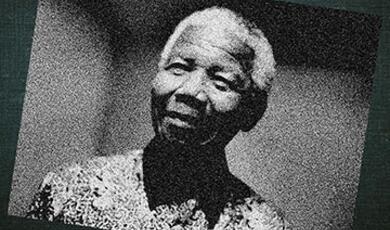Book launch - The Gresham Cabinet Reader
Share
- Details
- Transcript
- Audio
- Downloads
- Extra Reading
This book launch marked the publication of The Gresham Reader on British Cabinet Government, compiled by former Gresham Professor Peter Hennessy and Giles Edwards.
Download Transcript
SCOTTISH COUNCIL FOUNDATION, RAMSAY GARDEN SEMINAR, EDINBURGH
18 November 2004
‘Informality and Circumscription: The Blair style of Government in War and Peace’
Peter Hennessy, FBA
In memory of Giles Gordon (1940-2003)
Friend, Literary Agency and Life-enhancer Sans Pareil
My text for today, which helps explain the title of this paper, is the 67th and final paragraph of Lord Butler’s conclusions at the end of the report prepared earlier this year by his Committee of Privy Counsellors following their Review of Intelligenceon Weapons of Mass Destruction and its uses and misuses on the road to War in Iraq.
‘We do not suggest that there is or should be an ideal or unchangeable system of collective Government, still less that procedures are in aggregate any less effective now than in earlier times. However, we are concerned that the informality and circumscribed character of the Government’s procedures which we saw in the context of policy-making towards Iraq risks reducing the scope for informed collective political judgement. Such risks are particularly significant in a field like the subject of our Review, where hard facts are inherently difficult to come by and the quality of judgement is accordingly all the more important.’ 1
With those words, and the supporting paragraphs in the main body of his text on the failings of collective government in the shadow of war, 2 Robin Butler did two things. As his old friend Sir Michael Quinlan, the former Permanent Secretary to the Ministry of Defence, pointed out,
‘The closing paragraphs of the Butler Report, remarkable enough in themselves, were made more so by the facts both that their inclusion represented something of a stretch of the Committee’s remit, and that the Committee’s composition meant that they carried the assent of Mrs Ann Taylor, who had been a participant in Mr Blair’s Cabinet.’ 3
Secondly, in the words of Giles Edwards in his Gresham Reader on Cabinet Government, which is published by Politico’s next week,
‘Just when we thought the debate between Cabinet and prime minister had been decided decisively in favour of the latter, back came Lord Butler. His report into the intelligence failures leading up to the Iraq war provided a fascinating glimpse inside government - actually the second in a year, after the revelations of the Hutton Inquiry hearings the previous summer 4 - and a strong case for a more collective approach to information-sharing and decision-taking. In so doing, it enlivened a battle which has been raging for more than a hundred years...’ 5
For Tony Blair, even more than Margaret Thatcher before him, has revived the ancient debate in Technicolor, partly because of the degree to which he was a warrior premier presiding over British involvement in five military conflicts over six years (Iraq in December 1998; Kosovo; Sierra Leone; Afghanistan; Iraq 2003) - a strike-rate unprecedented since 1945 if you exclude the colonial emergencies which were running at the same time as Korea and Suez.
The other reason why scholars of the great Cabinet versus Prime Minister debate will linger long over the Blair years in generations to come is largely separate from the Tony-as-warrior phenomenon. It is because of the Tony-Gordon factor (though it must be said, if the Chancellor of the Exchequer had dissented in the Cabinet Room let alone publicly from the Prime Minister’s war policy during those final weeks in early 2003, the British Anned Forces would not have been involved in the March invasion of Iraq). For the great flaw in the argument of those who paint a picture of a ‘Blair Presidency’ is that Whitehall, since May 1997, has been more of a dual monarchy of a very peculiar kind with rival courts around the Prime Minister and the Chancellor constantly sniping at each other with an endless percussion of briefings and counter-briefings drumming the disputes over matters great and small into ever-willing journalistic ears.
Modem British political history has experienced nothing like it and nor has Whitehall on which it inflicts considerable tension and confusion. The nearest parallels - Neville Chamberlain’s Chancellorship during the Baldwin years 6; Stafford Cripps’ special position in the Attlee Government after 1947 7 - do not measure up to the bizarre singularity ofthe special relationship within the Labour Government over the past 7½ years. For not only does the rival monarch sit on the incumbent monarch’s terrain, he controls his superior’s finances. Real civil war has, so far, been averted because of a carefully choreographed stand-off with each allowing the other the lead on certain policy issues 8 - the really serious friction coming over those questions, like the euro, where each claim to be the dominant player and the question of the timing of one monarch’s abdication and the inheritance of the other.
It makes for a spectacle both fascinating and farcical - rather like having Gladstone and Disraeli in the same Cabinet plus press officers and special advisers of the modern obsessional sort making everything worse. It has also burnt up a degree of nervous energy all round that can only be described as profligate; Margaret Thatcher’s tensions with Nigel Lawson in the late 1980s are league division two by comparison. 9 The question of how it will end produces a near-constant feeding frenzy amongst the political court reporters within the Westminster Lobby and, on occasion, it seems as if the political columnists can think of little else. What you really need is a medievalist not a contemporary historian to depict it.
Undeterred, however, I have attempted to do for the Blair premiership something which, in terms of historical tradecraft, I wish I had done during the Thatcher years; that is to photograph the style and patterns of government in flight. For there is a besetting sin lurking all the time amongst us contemporaries. It is a desire, once a premiership is over and the once-mighty leader has been passed, as it were, into the hands of literary agents for memoir purposes and ours for longer-term historical calibration and assessment, to tidy the portrait up a bit, to forget how confusing the scene appeared at the time; to air-brush out the aspects we exaggerated or underestimated as the particles of the developing picture flew past us.
As an anticipatory antidote to this, I have had a stab at portraying the shifting scene every six-to-nine months by overflying: Mr Blair’s Whitehall. 10 Looking right back to the early reels of reconnaissance film, it’s plain I failed to appreciate the extent, the magnitude and the centrality of the ‘dual monarch’ phenomenon. A very recent example of interpretative inaccuracy is also striking. Until today, my most recent overflight set the cameras rolling in the months between the publication of the Hutton and Butler reports. I called it Rulers and Servants of the Stateand delivered it to the Public Interest General Council of the Office for Public Management in June this year. 11
I drew, as other observers have, a distinction between ‘home front’ Blair and Blair as global statesman and warrior. Philip Stephens in his beautifully crafted study of the Blair premierships, reported that
‘Even to those who inhabited the corridors of power, it sometimes seemed there were two prime ministers living in Downing Street. The first, the confident moral missionary, took his place with verve and courage on the international stage. The second seemed hesitant and careworn as he grappled with the obstinate obsolescence of the national’s health and education systems. 12
This partly stemmed from the outspoken stand-off arrangements between Prime Minister and Chancellor with Mr Brown showing little inclination to get in the way of Mr Blair’s strange blend of Blue Peter (and next week, we sort out the Middle East) and Coca Cola (we are the world). There are quite a few in Whitehall and beyond who profoundly regret that Gordon Brown did not exert his formidable powers in the Cabinet Room and articulate what one hears were his private doubts about going to war in Iraq in the early months of 2003. But the deal held.
In my summer 2004 ‘overflight’, I reported Whitehall insiders as being struck by the degree to which Tony-as-warrior was not obliged to share power with his commanding Chancellor and how those same insiders stressed the degree to which he was more traditional in his use of Cabinet and Whitehall machinery during the political, diplomatic and military build-up to the war. 13 ‘They were proper committees,’ said one seasoned veteran, even if they were not formally dubbed Cabinet committees. 14 I cited another well-placed insider in conversation not long after the war as telling me ‘The Prime Minister’s morning meeting’ on Iraq - as the , War Cabinet’ was called – ‘met pretty well daily with a fixed membership and prepared plans. If it had been a Cabinet committee, it would not have been any different. And it’s still meeting,’ he added. 15
I noted, too, how the Prime Minister when appearing before the House of Commons liaison Committee in the summer of 2003 had stressed that the full Cabinet had had plenty of opportunities to discuss Iraq before the invasion. 16 I quoted Robin Cook, who attended all those meetings before resigning, as saying: ‘I don’t blame Tony Blair. Tony gave Cabinet plenty of time to discuss Iraq. But most in the Cabinet had lost the habit of dissent’. 17
Yet it was on this exact point that Lord Butler delivered the most damning and authoritative criticism in memory of a serving Prime Minister’s style of government, far outstripping anything in Lord Franks’ 1983 report after he and his fellow privy counsellors delivered their report on Mrs Thatcher’s conduct in government in the run up to the Falklands War of 1982. 18 Just listen to the key paragraphs 609 and 610 in the Butler Report. 609 first:
‘In the year before the war, the Cabinet discussed policy matters towards Iraq as a specific agenda item 24 times. It also arose in the course of discussions on other business. Cabinet members were offered and many received briefings on the intelligence picture on Iraq ; and we have been informed that it was substantive. The Ministerial Committee on Defence and Overseas Policy did not meet. By contrast, over the period from April 2002 to the start of military action, some 25 meetings attended by the small number of key ministers, officials and military officers most closely involved provided the framework of discussion and decision-making within Government.’ 19
Butler intriguingly failed to notice that Mr Blair thought this informal group and its mutation into a ‘War Cabinet’ was a proper Cabinet committee. Listen now to the Prime Minister speaking to the House of Commons Liaison Committee on 8 July 2003 in reply to questions from Sir George Young about his ‘style of government’:
‘As for the suggestion that Cabinet has been sidelined, after I read that allegation I went back through and since March 2002 Iraq started to be debated at Cabinet since it became a live issue; from September 2002 onwards I think at virtually every Cabinet meeting it was debated; during the course of the war 28 separate meetings of the relevant Cabinet committee were held…
‘In relation to the Defence Committee that you mentioned, the reason why it was not meeting was that we had a special committee meeting on the war… The notion that the Cabinet was not involved is simply contradicted by the meetings that we had both of the Cabinet and of the sub-committee of the Cabinet dealing with the issue to do with the war.’20
This testimony from the Prime Minister confirmed what my private sources were saying about Mr Blair-the-war premier being a much more traditional user of the Cabinet machinery than say, Mr Blair-the-transformer of the welfare state - hence the line I took in my summer 2004 ‘overflight.’
The Butler report, however, demolished both Mr Blair’s insider explanation and my outsider analysis. Six hundred and ten is his killer paragraph. ‘One inescapable consequence,’ of the small group preparing the way to war rather than the Defence and Overseas Policy Committee or the full Cabinet, Robin Butler wrote,
‘was to limit wider collective discussion and consideration by the Cabinet to the frequent but unscripted occasions when the Prime Minister, Foreign Secretary and Defence Secretary briefed the Cabinet orally. Excellent quality papers were written by officials, but these were not discussed in Cabinet or Cabinet Committee. Without papers circulated in advance, it remains possible but is obviously much more difficult for members of the Cabinet outside the small circle directly involved to bring their political judgement and experience to bear on the major decisions for which the Cabinet as a whole must carry responsibility. 21
Nor did Butler spare his successor-but-one as Cabinet Secretary, Sir Andrew Turnbull. Turnbull, in order to concentrate on the delivery of improved public services, devolved the Cabinet Secretary’s traditional oversight of intelligence and security matters to Sir David Omand, the Co-ordinator of Security and intelligence in the Cabinet office ‘The absence of Cabinet papers on the agenda, Butler continued,
‘so that Ministers could obtain briefings in advance from the Cabinet Office, their own departments or from the intelligence agencies plainly reduced their ability to prepare properly for such discussions, while the changes to key posts at the head of the Cabinet Secretariat lessened the support of the machinery of government for the collective responsibility of the Cabinet in the vital matter of war and peace.’ 22
There is no precedent for such trenchant and fundamental criticism of a serving government as Robin Butler’s. And yet some to this day in the press, public and Parliament believe his report was a whitewash.
Several questions arise from Butler ’s critique. A crucial one, - why have the Blair Cabinets proved to be the most supine since 1945? - I shal1leave to last. First, why were those seasoned insiders so certain in portraying the Blair machinery-of-war- government as traditional in method of structure? Partly, I think, because after six years, the Blair style had so changed matters that different yardsticks were applied. They had ceased to be shockable at the casualness, the corner-cutting, the lack of papers. Robin Butter, like his fellow inquirers Sir John Chilcot (a former Permanent Secretary at the Northern Ireland Office) and Field Marshal Lord Inge (a former Chief of the General Staff) brought to the Blair style minds primed in a different generation and marinated over several premierships and governments. They were still shockable. And quite plainly they were shocked by what they found.
They were supported in this by other former big players in Whitehall - most notably Sir Michael Quinlan and Lord Wilson of Dinton (Sir Andrew Turnbull’s immediate predecessor as Cabinet Secretary). Both Quinlan and Wilson contributed to a collection of essays and commentaries recently published by the British Academy based upon a symposium it held on the significance of the Hutton and Butler reports last July within a few days of Butler ’s publication. For Quinlan,
Mr Blair has sought to bring to his Prime Ministership a strong focus upon delivery - the achievement of practical results. This salutary concern can, however, slide into a sense that outcome is the only true reality and that process is flummery. But the two are not antithetical, still less inimical to one another. Process is care and thoroughness; it is consultation, involvement and co-ownership; it is (as we were reminded by the failure of international in the run-up to the Iraq war) legitimacy and acceptance; it is also record, auditability and clear accountability. It is often accordingly a significant component of the outcome itself; and the more awkward and demanding the issue - especially amid the special gravity of peace and war - the more it may come to matter.’ 23
In the same volume, Richard Wilson specifically endorsed Robin Butler’s conclusion about the dangers of informality and circumscription, while recognising that:
‘Different Prime ministers have different ways of doing business and there is no "right" way of running a Government. It is quite possible to reconcile due process with an informal style. But the risk is that informality can slide into something more fluid and unstructured, where advice and dissent may either not always be offered or else may not be heard. This is certainly a matter which engages collective responsibility. Prime Ministers are only as powerful as their colleagues allow them to be.’ 24
More on that last point in a moment.
In the past Tony Blair has dismissed such debate about the nuances and due processes of government as a kind of anorakry, whether it be conducted by select committees, scholars or retired permanent secretaries. Here he is in the House of Commons in July 2000 replying to the concerns of the Public Administration Select Committee, about the contents and significance of the Ministerial Code, the document formerly known as Questions of Procedure for Ministers. 25
’…no one will be better governed through fine-tuning the Ministerial Code.Those are good issues for academics and constitutional experts, but they are not the big issues that Parliament should debate when we consider our role in modern society. 26
The Butler report placed such matters as proper procedure right at the heart of Mr Blair’s prime ministerial ‘role in the modem society.’
On 20 July 2004 , six days after Butler was published, Tony Blair was on his feet in the House of Commons undertaking to implement his procedural recommendations. The constitutional anorak suddenly fitted the prime ministerial shoulders. Donning it was now part of the strategy of sustaining his premiership in the aftermath of Butler. In stark contrast to the picture he had painted before the Liaison Committee a year earlier, Mr Blair admitted that the ecology of his Prime Minister’ s Group on Iraq had left something to be desired as the invasion of Iraq approached; ‘prior to the war,’ he told the House,
‘meetings were held with an informal group, including the Foreign and Defence Secretaries [Jack Straw and Geoff Hoon], the Chief of the Defence Staff [Admiral Sir Michael Boyce], the head of the Secret Intelligence Service [Sir Richard Dearlove], the chairman of the JIC [John Scarlett] and my foreign policy adviser [Sir David Manning]. In any future situation, such a group, which brought together the key players required to work on operational military planning and developing the diplomatic strategy, will operate formally as an ad hoc Cabinet Committee.’ 27
Before turning to the wider question of whether Mr Blair, post-Butler, is likely to change his style to make it less of a commanding ‘Tony wants’ phenomenon and a touch more collegial and formal (in the sense of prepared papers for Cabinet and Cabinet committees and proper minuting of decisions taken in his more fluid groups), there is one piece of unfinished business which Lord Butler reopened when he appeared before the Commons Public Administration Select Committee three months after his report was published.
In his report, Robin Butler had shown that in the spring of 2002, when the Government made its fundamental shift from a policy of containing Saddam Hussein to a policy designed ‘to enforce disarmament [it] was not based on any new development in the current intelligence picture on Iraq.’ 28 Similarly, in the run-up to the war, the Attorney-General, Lord Goldsmith (who eventually judged it legal without a further, specific United Nations resolution authorising the use of force 29) warned his ministerial colleagues that ‘there would be no justification for the use of force against Iraq on grounds of self-defence against an imminent threat.’ 30 One of
the impressive aspects of the Butler Report was the way his committee followed the intelligence trail into the Attorney General’s office and assessed the degree to which it did or did not shape his legal advice to the Prime Ministers’ Group on Iraq and to the Cabinet.
The Attorney’s legal opinion has not been published in full. All Parliament has been given is a written answer from Lord Goldsmith, with an accompanying summary prepared by the Foreign Office, dated 17 March 2003. 31 The Butler Committee has seen the opinion in full. 32 What we did not know until Lord Butler appeared before the select committee on 21 October 2004 is that initially the Government had been unwilling to show it to his committee of privy counsellors. As Butler put it to the MPs,
‘there were moments when we had a bit of tension with the government about whether they were going to disclose documents to us. One of the examples of that was the Attorney General’s legal opinion. Had we gone public and said, "We think this is relevant to our committee and the government will not give use access to it," we would have had huge public and media support. That was an important leverage on the government.’33
Lord Butler’s revelation was striking in itself. But it also suggested that Lord Goldsmith’s opinion, which led to the instant resignation of Elizabeth Wilmshurst, the Foreign Office’s foremost expert on the legality of military operations, 34 was even squishier and more finely balanced than we had thought, so reluctant was the Government to let the Butler team read it.
Missing from the Butler Report is the information that it was not ministers who requested that final legal opinion from Lord Goldsmith. It was the senior military and top civil servants in the Ministry of Defence who did so. General Sir Michael Jackson, Chief of the General Staff, put it with characteristic directness at the time declaring ‘I spent a good deal of time recently in the Balkans making sure that Milosovic was put behind bars. I have no intention of ending up in the next cell to him in the Hague.’ 35
Can the full Cabinet really have tested Lord Goldsmith’s opinion when, as Butler reported, the ‘Attorney General set out his view on the legal position to the Cabinet on 17 March [2003], by producing and speaking to the Written answers he gave to Parliament on that day? 36 I seriously doubt it.
For me this and the other accumulations of failures to scrutinise and question within the privacy of the Cabinet Room amounts to a dereliction of Cabinet government comparable only to the autumn of 1956 when Sir Anthony Eden’s Cabinet did not press him at the height of the Suez crisis on the significance of his telling them on 23 October that ‘from secret conversations which had been held in Paris with representatives of the Israeli Government, it now appeared that the Israelis would not alone launch a full-scale attack against Egypt.’ 37 From these remains you did not need a background in British intelligence to sniff out the collusion between the UK , France and Israel which Eden subsequently flatly denied in the House of Commons. 38 For me. Lord Goldsmith’s March 2003 opinion on the legality of the Iraq War was and remains the fault-line under the Blair Government just as the October 1956 collusion was the fissure beneath Eden ’s Cabinet. Like the permanent stain of Suez on Eden ’s reputation, it will not be eradicated from the memory of the Blair premierships for generations to come.
In 1956, as in 2003, the key factor was a human one. The ultimate systems failure in both instances occurred at proper, formal Cabinet meetings. Butler , Wilson and Quinlan are right to stress the price that can be paid if too much is left to tiny groups with insufficient briefing for the full Cabinet. But if the full Cabinet will not take on a dominant Prime Minister in full cry - even in the last days before hostilities begin - there is no other part of the system of government that can compensate for such supineness. For the House of Commons, even if it is permitted a specific vote on peace and war (as it was in 2003), is not going to possess a range and detail of knowledge comparable to that of ministers before the division bells ring and MPs have to decide.
In the Commons last July, Tony Blair promised to tighten up his procedures if, heaven forbid, he should contemplate leading his country into yet another war of exemplary pre-emption. It was a welcome recognition that Butler ’s concerns were justified. But can it make any difference if Cabinet ministers will not, in a phrase beloved of Roy Jenkins, ‘rise to the level of events?’ They have shown a touch more mettle in recent weeks over the deployment of the Black Watch closer to Baghdad 39 and the plans to make parts of Britain safe for the croupier. But none of this compares to peace and war.
Why is the contemporary ecology of the Cabinet Room such a cause for concern? It is partly, as Michael Quinlan pointed out, a function of political generation, for, as he put it,
‘Mr Blair… entered office with limitations both in the resources available to him and in his own feel for the customary running of public business. (Whatever one may think of the balance of might-have-beens in other respects, John Smith - for whom I. once worked closely with trust upon both sides upon a project [devolution to Scotland and Wales in the mid to late 1970s] of
whose merits he knew I became sceptical - would surely have understood the Government machine more clearly and confidently, and handled issues of structure and procedure differently…). Against that background, it is neither surprising nor illegitimate that a Prime Minister of Mr Blair’s abilities, energy and self-confidence, coming to and subsequently retaining power… should have chosen to operate in a more centralized way than almost any predecessor…’ 40
All true. As is Tam Dalyell’s observation that with the decline of the Labour Party’s National Executive as a political force, few possess the relative independence that once came with NEC membership in the days when figures like Jim Callaghan and Barbara Castle would see Harold Wilson in Downing Street as ministers one day and, with NEC hats on, in Transport House the next. Their status depended on a mix of party votes and prime ministerial appointment. 41 Now, with a few big exceptions in the Cabinet Room, such as Gordon Brown and John Prescott, power and place come courtesy of Mr Blair alone. ‘Tony wants,’ therefore, usually means that ‘Tony gets.’
A few weeks ago, I had lunch with one of the most remarkable and stimulating observers of the Whitehall scene - Sir Antony Jay, co-author of Yes, Minister and Yes Prime Minister. ‘If,’ I asked him, ‘you were setting out to depict early twenty-first century government in a television series, what would be your theme? With what would you start?’ 42
After a moment’s pause, Tony said: ‘With Wolsey’s remarkable line in Shakespeare’s King Henry the Eighth when, ‘weary and old with service,’ he is told that the King is dropping him. The Cardinal cries out
‘O, how wretched
Is that poor man that hangs on princes’ favours.’ 43
Not for nothing was Mr Blair’s Downing Street dubbed ‘the Court of King Tony’ very early on after 1997 by one of the most seasoned of Whitehall operators. 44 Will the Butler Report really change those deep-grained habits on the part of the dispenser and the receivers of patronage? Only, I suspect, if the engines of war are cranked up once more.
‘INFORMALITY AND CIRCUMSCRIPTION: Mr BLAIR STYLE OF GOVERNMENT IN WAR AND PEACE.’ ENDNOTES.
1 Review of Intelligence on Weapons of Mass Destruction: Report of a Committee of Privy Counsellors, HC 898, (Stationery Office, 14 July 2004 ), p.160.
2 Ibid, paragraphs 606-11, pp.I46-8.
3 Michael Quinlan, ‘Lessons for Governmental Process,’ in W.G.Runciman (ed), Hutton and Butler: Lifting the Lid on the Workings of Power, (British Academy/OUP, 2004), p.128.
4 Lord Hutton, Report of the Inquiry into the Circumstances Surrounding the Death of Dr David Kelly CMG, HC 247, (Stationery Office, 28 January 2004 ).
5 Giles Edwards (ed), Gresham Reader on Cabinet Government,(politico’s, 2004), p.ix.
6 John Ramsden, An Appetite for Power: A history of the Conservative Party since 1830, (HarperCollins, 1998), p.260.
7 Peter Clarke, The Cripps Version: The Life of Sir Stafford Cripps, ( Allen Lane , The Penguin Press, 2000), pp.479-522.
8 Peter Hennessy, ‘The Blair Style of Government,’ RSA Journal,December 2002, p.43.
9 Nigel Lawson, The View from No. 11: Memoirs of a Tory Radical,(Bantam, 1992), pp.917-71.
10 The overflights were: Peter Hennessy, ‘The Blair Style of Government: An Historical Perspective and an Interim Audit, , The Leonard Schapiro Lecture delivered at the London School of Economics on 2 December 1997 and published in Government and Opposition, vol.33, no.l, (winter 1998), pp.3-20; Peter Hennessy, Re-engineering the State in Flight: A Year in the Life of the British Constitution, Lloyds TSB Forum Lecture delivered in Glasgow on 28 April 1998 and published by Lloyds TSB; Peter Hennessy,The Blair Centre: A Question of Command and Control?, delivered to a seminar organised by the Public Management Foundation in London on 20 October 1998 and published by the PMF in February 1999; Peter Hennessy, ‘The British Civil Service: The Condition of Mr Gladstone’s Legacy as the Century Turns. ‘ Founder’s Day Address delivered in honour of W.E.Gladstone at St Deiniol’s Library, Hawarden on 8 July 1999 and published as a special supplement to The Stakeholder, July 1999 edition; Peter Hennessy, The Importance of Being Tony: Two Years of the Blair Style, the Lord Mayor’s Lecture 1999 delivered at St Thomas’ Hospital, London on 12 July 1999 and published by the Guy’s and St Thomas’ Hospital Trust the same day; Peter Hennessy, The Blair Revolution in Government? Delivered to the Centre for British Government at Leeds University of 14 February 2000 and published by Leeds University’s Institute for Politics and International Studies in April 2000; Peter Hennessy, Tony Wants: The First Blair Premiership in Historical Perspective, The Royal Historical Society/Gresham College Colin Matthew Lecture 2001 delivered 7 November 200 1 at Staple Inn. Holborn (text available from Gresham College); Peter Hennessy, ‘The Blair Style of Government,’ delivered to the Royal Society of Arts Wales and the West of England, Bath University, 10 June 2002 and published in RSAJournal, December 2002; Peter Hennessy, ‘The Secret State Revisited: The Safety of the Realm in Retrospect and Prospect’ delivered to the Royal United Services Institute on 23 May 2003 and published in RUSI Journal, August 2002; Peter Hennessy, ‘Government and Ethics,’ The First Harold Wilson Memorial Lecture delivered at the University of Huddersfield on 28 April 2004.
11 Peter Hennessy, Rulers and Servants of the State: The Blair Style of Government, 1997-2004, (OPM. 2004).
12 Philip Stephens, Tony Blair, (Viking and Politico’s, 2004), p.174.
13 Hennessy, Rulers and Servants of the State, p.l0.
14 Ibid.
15 Ibid.
16 Ibid; House of Commons Liaison Committee, Minutes of Evidence, 8 July 2003 , HC 334-ii, (Stationery Office, 2003).
17 Hennessy, Rulers and Servants of the State, p.lO.
18 Falkland Islands Review. Report of a Committee of Privy Counsellors,Cmnd 8787, (HMSO, 1983). 19
19 Review of Intelligence on Weapons of Maws Destruction, p.147.
20 House of Commons Liaison Committee, Minutes of Evidence, 8 July 2003.
21 Review of Intelligence on Weapons of Mass Destruction, pp.147-8.
22 Ibid, p.I48.
23 Quinlan, ‘Lessons for Governmental Process,’ in Runciman (ed), Hutton and Butler, p.128.
24 Richard Wilson, ‘Issue of Evidence: Discussion,’ in ibid, p.85.
25 Amy Baker, Prime Ministers and the Rule Book, (Politico’s, 2000).
26 House of Commons, Official Report. 13 July 2000. Pt 16 on the Stationery Office’s Parliamentary website.
27 House of Commons, Official Report, 20 July 2004 , col. 195.
28 Review of Intelligence on Weapons of Mass Destruction, p.105.
29 Ibid, Annex D, pp.181- 7-
30 Ibid, p.94.
31 Ibid, pp.181-7.
32 Ibid, p.95.
33 House of Commons Public Adminis1ration Select Committee,Government by Inquiry, evidence from Lord Butler of Brockwell, 21 October 2004.
34 Review of Intelligence on Weapons of Mass Destruction, p.94.
35 Private inforn1ation.
36 Review of Intelligence of Weapons of Mass Destruction , p.96
37 National Archives, Public Record Office, CAB 128/30, CM (56) 72, Confidential Armex, 23 October 1956. See also Peter Hennessy, The Prime Minister: The Office and Its Holders since 1945, ( Allen Lane , the Penguin Press, 2000), pp.218-47.
38 House of Commons, Official Report, 20 December 1956.
39 Patrick Wintour and Richard Norton-Taylor, ‘Cabinet grills Blair on troop movement" , The Guardian, 22 October 2004.
40 Quinlan. ‘Lessons for Governmental Process,’ in Runciman (ed), Hutton and Blair, pp.126- 7.
41 Conversation with Tam Dalyell, MP, 4 November 2004.
42 Conversation with Sir Anthony Jay, 26 October 2004.
43 William Shakespeare, King Henry the Eighth, Act III, Scene II, limes 366-7, The Works ofWil/iam Shakespeare, (Shakespeare Head Press/Blackwell, 1938), p.1182.
44 Private information.
This event was on Mon, 22 Nov 2004
Support Gresham
Gresham College has offered an outstanding education to the public free of charge for over 400 years. Today, Gresham plays an important role in fostering a love of learning and a greater understanding of ourselves and the world around us. Your donation will help to widen our reach and to broaden our audience, allowing more people to benefit from a high-quality education from some of the brightest minds.


 Login
Login







